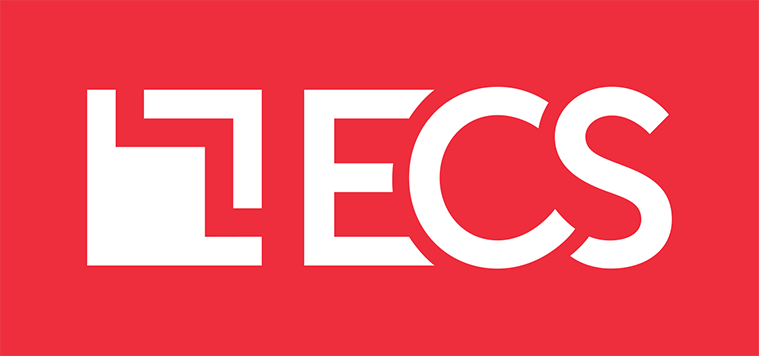By Imran Bashir, Ph.D.
Chief Technical Officer, Cloud Computing and
Vice President, Emerging Technologies
While some may consider it as a misinterpretation of Dr. Maxwell Maltz’s Psycho-Cybernetics work, they say that if you do something for 21 days in a row, it becomes a habit. In 2021, I am curious to see what practices organizations, projects, and people employ that can be considered good habits when it comes to cloud.
Organizations that employ cloud to achieve their missions and objectives follow many common practices that propel them to success. These practices and activities should be followed consistently so that they become habits. Based on ECS’ experience with cloud projects and organizations of all sizes and kinds, we have observed the following practices to be highly effective habits of cloud people, projects, and organizations.
1
INNOVATION
![]() Organizations with a culture of innovation fare far better in leveraging cloud to achieve their business and technical objectives. These organizations are not afraid to fail and are always looking to experiment with new ideas in a structured manner. People in innovative organizations are encouraged to propose new ideas and offered opportunities to exercise them. Cloud increases their ability to exercise these ideas with little investment.
Organizations with a culture of innovation fare far better in leveraging cloud to achieve their business and technical objectives. These organizations are not afraid to fail and are always looking to experiment with new ideas in a structured manner. People in innovative organizations are encouraged to propose new ideas and offered opportunities to exercise them. Cloud increases their ability to exercise these ideas with little investment.
These organizations see failed ideas as successes, learning from these cases for future implementation. Many organizations, for example, now leverage AI/ML tools to achieve tighter integration with enterprise design, cost optimization, and monitoring and security practices with great results.
2
LEARNING CULTURE
![]() Organizations where cloud has flourished always promote a learning culture. These organizations encourage their employees’ quests for knowledge of new technologies and practices. They promote knowledge-sharing through portals that leverage online learning from cloud service providers (CSP).
Organizations where cloud has flourished always promote a learning culture. These organizations encourage their employees’ quests for knowledge of new technologies and practices. They promote knowledge-sharing through portals that leverage online learning from cloud service providers (CSP).
As learning models evolve from classroom-only training to online and self-learning opportunities, these organizations adopt to provide incentives for their employees to improve their skills through quarterly and annual self-improvement goals and rewards. According to Inc., a learning culture attracts younger talent and boosts retention, providing a great mix of energy and experience.
3
ORGANIZATIONAL COMMITMENT
![]() Another common practice for effective organizations is their commitment to cloud technology at an enterprise level. These organizations are no longer limited to pilot cloud projects, but have adopted cloud as a strategic commitment. Irrespective of cloud and CSP, these organizations leverage cloud as a building block for their business and IT services. For example, the federal government’s strategies of Cloud First in 2017 and Cloud Smart in 2019 have led to an increase in federal cloud spend from $4.4 billion in 2017 to a projected $7.2 billion in 2021. Many commercial organizations have similar or even better success rates using cloud as their primary strategic technology.
Another common practice for effective organizations is their commitment to cloud technology at an enterprise level. These organizations are no longer limited to pilot cloud projects, but have adopted cloud as a strategic commitment. Irrespective of cloud and CSP, these organizations leverage cloud as a building block for their business and IT services. For example, the federal government’s strategies of Cloud First in 2017 and Cloud Smart in 2019 have led to an increase in federal cloud spend from $4.4 billion in 2017 to a projected $7.2 billion in 2021. Many commercial organizations have similar or even better success rates using cloud as their primary strategic technology.
4
PARTNERSHIPS
![]() Successful cloud organizations tend to use a cloud ecosystem rather than trying to do everything on their own throughout the cloud adoption and enablement journey. This includes teaming up their sales and technology personnel with CSPs to leverage CSP experience and insights, with strategic partners to get a head start on cloud projects and avoid common mistakes, and with technology partners to leverage buy-versus-build strategy. This teaming approach not only allows these organizations to achieve an accelerated go-to-market time, but also improves their in-house knowledge and experience at a faster pace.
Successful cloud organizations tend to use a cloud ecosystem rather than trying to do everything on their own throughout the cloud adoption and enablement journey. This includes teaming up their sales and technology personnel with CSPs to leverage CSP experience and insights, with strategic partners to get a head start on cloud projects and avoid common mistakes, and with technology partners to leverage buy-versus-build strategy. This teaming approach not only allows these organizations to achieve an accelerated go-to-market time, but also improves their in-house knowledge and experience at a faster pace.
5
CLOUD CENTER OF EXCELLENCE
![]() Another common factor for successful organizations is the establishment of a cloud center of excellence (CoE). The cloud CoE serves as the central resource for establishing architecture blueprints, operation playbooks, cost modeling, standards and guidelines, and best practices. The cloud CoE allows all projects to follow a lean, consistent, and customizable approach to developing and deploying high-quality projects with shorter schedules. Sjoukje Zaal of Capgemini called a cloud CoE as “an ideal model to accelerate your cloud adoption program.”
Another common factor for successful organizations is the establishment of a cloud center of excellence (CoE). The cloud CoE serves as the central resource for establishing architecture blueprints, operation playbooks, cost modeling, standards and guidelines, and best practices. The cloud CoE allows all projects to follow a lean, consistent, and customizable approach to developing and deploying high-quality projects with shorter schedules. Sjoukje Zaal of Capgemini called a cloud CoE as “an ideal model to accelerate your cloud adoption program.”
6
REQUIREMENTS-DRIVEN DECISIONS
![]() Highly effective and successful projects and organizations drive solutions by leveraging the best capabilities of cloud, independent of the provider. While the cost of using multiple CSPs may seem higher from one perspective, it may be offset by reduced risk from another perspective.
Highly effective and successful projects and organizations drive solutions by leveraging the best capabilities of cloud, independent of the provider. While the cost of using multiple CSPs may seem higher from one perspective, it may be offset by reduced risk from another perspective.
A word of caution here: we do not recommend that an organization use multiple clouds. Based on many business and technical factors, judiciously selecting a cloud provider may make more sense than going to multiple clouds. The point to note is that successful organizations let their technology decisions be driven by requirements rather than by a single technology. It may be more beneficial for one organization to leverage a hybrid cloud model to keep its data on-premises due to compliance and other requirements, while another organization may find it more cost effective to go with a single CSP. According to Bloomberg Government analyst Chris Cornillie, “Major upcoming cloud solicitations stress hybrid and multi-cloud management.”
7
DEVSECOPS CULTURE
![]() Successful cloud organizations have evolved their engineering practices to leverage DevSecOps. DevSecOps is not limited to a framework and associated tools, but even more importantly includes the mindset and culture of an organization. These organizations have changed their engineering culture to a lean DevSecOps model in which infrastructure as code, security, Continuous Integration/Continous Deployment, and the “if you develop it, you own it” mentality are the norm.
Successful cloud organizations have evolved their engineering practices to leverage DevSecOps. DevSecOps is not limited to a framework and associated tools, but even more importantly includes the mindset and culture of an organization. These organizations have changed their engineering culture to a lean DevSecOps model in which infrastructure as code, security, Continuous Integration/Continous Deployment, and the “if you develop it, you own it” mentality are the norm.
These organizations employ a DevSecOps model and use all or part of the pipeline based on a project’s size and complexity. The DevSecOps framework ensures that security is quintessential at each stage of the pipeline and is integrated into engineers’ mindsets and organizational culture.
At ECS, we work with federal, commercial, and state and local organizations to help them achieve their business objectives by leveraging best-of-breed cloud technologies and engineering and management best practices, as well as ECS’ custom tools and frameworks, extensive experience, and highly qualified staff. We work with our customers to employ best practices that will eventually lead to effective habits to meet their current and future goals and objectives. These best practices ensure an organization a smooth ride in their cloud adoption and enablement journey.






